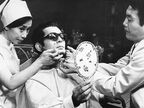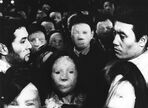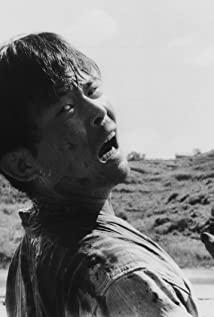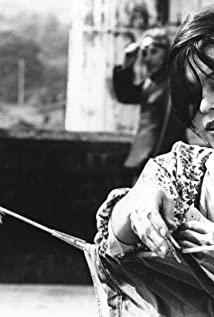In the Nara period, the makeup of Japanese women followed the prosperous Tang Dynasty. Snow-white cream and powder concealed the moisturization of the skin. The red rouge and lipstick seemed to symbolize the blood of death, murdering and devouring the vivid desires of the tongue and teeth mysteriously and delicately. The barbarians in Southeast Asia also introduced the custom of smearing their teeth to the Ryukyu Peninsula. In short, makeup is no longer an existence that beautifies human individuality and releases human secret desires, but as a repressive "mask"/totem that harmonizes with human beings, it itself symbolizes a universal religious and moral ethics. Substances, for example, humility—taboos and desires are two sides of a lens, inside and outside of each other, animating each other.
Therefore, once you try to remove taboos, you are essentially stripping away the real desire itself, and those who put on an external mask/"the face of others" are like trying the law, life becomes a Noh drama, and all desires that have been suppressed for a long time are violent and explosive. However, Jung and Lacan pointed out that the most immediate impulse is not necessarily not the real end, it is only a repressed stitching point, and below it, the infinite existence continues to be repressed and irreparable residue— -A man who puts on the face of others regains the infinite freedom of a healthy body, but still tries to expose the veil of all restraint in his love with his wife. The freedom of the unidentified person is only the proliferation of original sin. No matter how free he is, he will never be able to get himself desired. Rebellion of sociality points to two paths. One goes up and down. The "up" line leads to spiritual freedom, while the "down" line returns to pure natural law. Those who deviate are not necessarily heroes, they may also be hooligans.
View more about The Face of Another reviews











